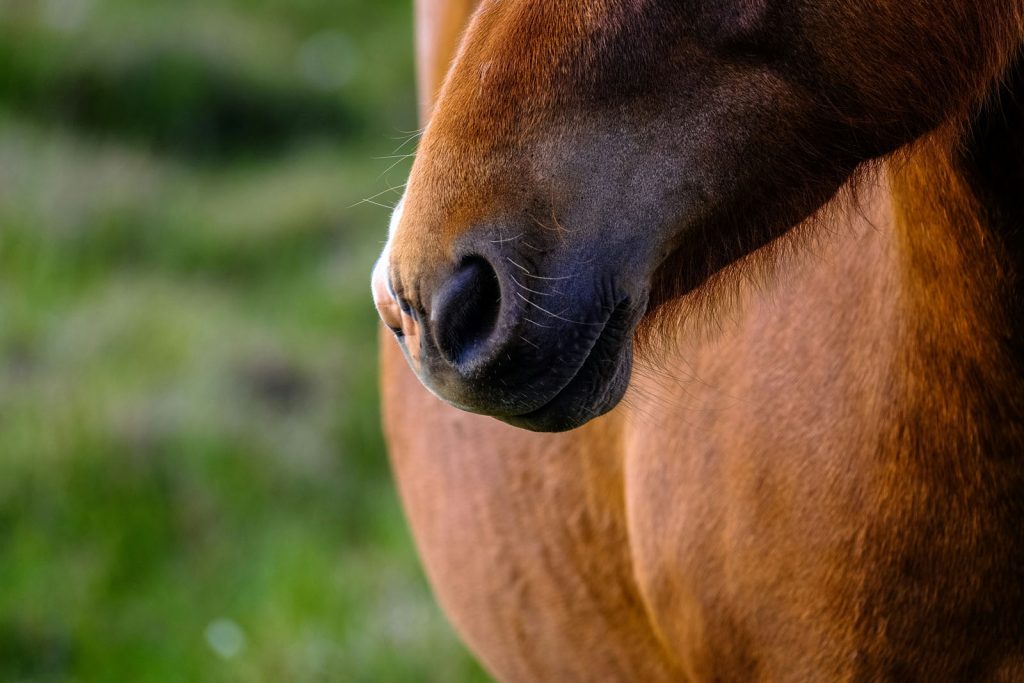Coughing, nasal discharge, and reduced stamina: respiratory problems are common in horses. Horses that are stabled, sensitive to dust, or fed hay are especially prone to airway issues. This is often simply referred to as “asthma.” But what does it actually mean? How do you recognize it, what can you do about it, and how can you support your horse?
How to Recognize Respiratory Problems or Asthma in Your Horse
Respiratory problems in horses often start subtly. These are signals to watch out for as an owner:
Coughing, especially when starting work or while in the stable
Nasal discharge (watery or mucous)
Rapid or heavy breathing
Reduced stamina
Flanks moving with each breath
Important to know: coughing is a symptom, not a diagnosis. It tells you that the airways are irritated or inflamed. A horse can cough once in a while, but if it coughs frequently, this usually points to a problem. Early recognition and proper management are crucial to prevent worsening.
Why Do Horses Develop Respiratory Problems?
Respiratory issues in horses are usually triggered by environmental factors such as:
Dust in hay or straw
Mold spores in feed or the stable
Poor ventilation in the stable
Ammonia fumes from urine
Climate changes and damp weather
These irritants can inflame the airways. The mucous membranes swell, produce more mucus, and the airways narrow. This makes breathing more difficult and leads to coughing.
Why Management Is So Important
The foundation of treatment always starts with reducing triggers:
Feed dust-free forage (such as steamed hay)
Ensure good stable ventilation
Use low-dust bedding
Provide as much fresh air and exercise as possible
By limiting these irritants, you allow your horse’s airways to rest and recover.

What Supportive Treatments Are Available?
In addition to proper management, you can give your horse extra support. Options include:
-
Medical Treatment
For severe or acute symptoms, a veterinarian may prescribe medication such as bronchodilators or anti-inflammatories. These suppress inflammation and make breathing easier temporarily. -
Diet and Supplements
Supplements with herbs, antioxidants, or omega-3s can support inflammatory processes and help boost overall immunity. -
Aerosol Therapy
This method delivers medications or supportive substances as a mist for the horse to inhale. The particles reach directly into the airways, exactly where they are needed. This provides targeted treatment with a lower dosage and fewer side effects than oral or injected medications. Various systems are available (such as inhalation chambers with puffs or nebulizers with a mask), usually on a veterinarian’s advice and prescription. -
Nano CellCare Therapy
An innovative, natural therapy where body-like substances such as hyaluronic acid and minerals from Dead Sea salt are nebulized into ultra-small nanoparticles. These are absorbed through the skin and inhalation. They support:
-
Hydration and suppleness of mucous membranes
-
Cell communication and lung tissue repair processes
-
Natural removal of waste products
-
Balance in the immune system
Nano CellCare offers a gentle, non-invasive way to support your horse’s respiratory system without injections or heavy medication.
How Long Does Recovery Take?
Recovery time depends on the severity and cause of the symptoms. With mild irritation, you may see improvement within a few weeks with proper management and support. For persistent or chronic respiratory problems, it can take months to get it under control, and ongoing management is essential.
When Should You Seek Help?
Does your horse cough regularly? Have nasal discharge or breathing problems? Don’t wait too long:
-
Always consult your veterinarian to rule out underlying causes.
-
Consider changes in stabling, feed, and training.
-
Explore additional support such as Nano CellCare to aid the recovery process from within.
Would you like to know if your horse could benefit from internal support with Nano CellCare therapy? Find out here.

